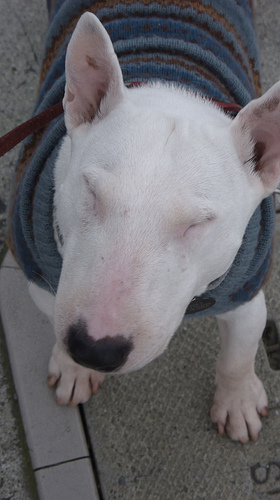Lessons from Blink suggest that we can learn how to understand the process of decision-making and how we can trust our instincts and intuition to make decisions quickly. We learn that our first impressions often are correct, but these intuitive judgments are developed by experience, training, and knowledge
To show this, Gladwell introduces the concept and power of what he calls “thin-slicing,” which is "the ability of our unconscious to find patterns, in situations and behavior, based on very narrow slices of experience."
An example of this is a test that was done by John Gottman, where in less than fifteen minutes, he could predict with 90% accuracy whether a couple would still be together fifteen years later. This was done by listening to a couple sitting alone in a room for fifteen minutes to talk about whatever they wanted and measuring the conversation.
The researchers assigned values to defensiveness, stonewalling, criticism, and contempt. Contempt and disgust were given higher values in this group. The man and woman used in a test had a new dog, and when left alone, it became the subject of their conversation. They had very different feelings about the new dog but never seemed to seem to get mad as they discussed the dog.
The woman wanted to keep their new dog and was inflexible in her opinions. She showed contempt for the man’s thoughts, often with eye rolls, and her position never changed. The man did not like the new dog but often started out saying, he was fine with the dog, but then followed up with why he didn’t like the dog.
The points assigned to the various aspects of the conversation were such that the conclusion was that this couple wouldn't be together in 15 years. A quick subjective decision may have suggested the same thing, but then that was the point. Subjectively we can, and do, measure the same points quickly.
Another example of "thin sliced" moments in time where big decisions were made was how much a person learns by a quick glance at another person’s private space. Even a bookshelf, cabinet or bedroom can communicate a lot by how they are organized, or not organized. The subconscious recognizes patterns and connections and we often just assume they are gut reactions.
Snap judgements were discussed and an obvious example was the process of speed-dating. It was clear that a mountain of data was gathered in the blink of an eye. This conclusion seems at odds with the conclusion that snap judgments work best when they're informed by careful thought beforehand? Gladwell is saying that if you have studied the data and have a criteria in mind you can make the decision quickly, but he is also saying decesions are not just a coin toss.
We intuitively attempt to use this concept on ourselves by "priming" our own behavior. We have stereotypes that we label other people with. For example, we may feel certain ways about what being a professor or someone in a certain profession is and this belief defines many things we do. We change our own behavior to become what we feel we want to be, as seen in the actions of other.
Too much information can distract from making good intuitive decisions. “We have, as human beings, a storytelling problem. We’re a bit too quick to come up with explanations for things we don’t really have an explanation for.” Gladwell writes that “The first task of Blink is to convince you of a simple fact, that decisions made very quickly can be every bit as good as decisions made cautiously and deliberately."
The key according to Gladwell is that "truly successful decision making relies on a balance between deliberate and instinctive thinking". Blink will be worth reading and give you more confidence in your own intuition.












